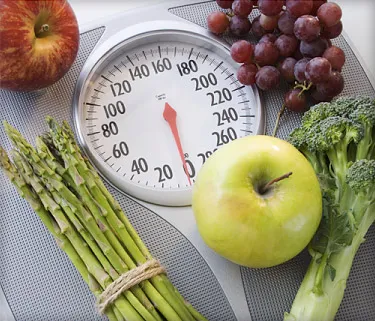
Getting Your Head Straight
You no doubt know how to lose weight - eat fewer calories and exercise more and you will see results. You may also have a list of things to change, such as eating more fruit and veg, going for a daily walk or buying low fat options.
If, like many people, you have difficulty losing weight and keeping it off – despite your best intentions, what do you think could be getting in the way?
First, reality-check your mindset with the want to lose weight quiz.
Next, answer the How are You Feeling about Losing Weight questions.
To change your weight, first change your mind
Research shows that one of the most important factors that influences weight loss success is your attitude – whether or not you believe (and keep on believing) that you can make the changes you need to make to lose weight, and that they are worth doing. This is because what you think, affects how you feel, and in turn the actions you take.
The best way I can describe this positive mindset is ‘getting your head straight’ about food and weight. It’s not something I can easily put into words – but you will know when it happens. From all my years of working with people with weight and eating problems, and from my own personal experience, I truly believe that it is they key to success.
Three Key Strategies for Taking Control
1. Understand Why You Eat
When I ask people what prompts them to eat, hunger usually comes down near the bottom of their lists. Some people struggle to remember or appreciate what true hunger feels like. We are lucky that we have plenty of food to eat in our society. But its constant presence makes it harder to control what we eat, especially if it brings us comfort or joy.
If you ever find yourself in the fridge, even though you’ve recently eaten, then you know hunger isn’t the reason. More than likely some negative emotion – feeling angry, lonely, sad, stressed, anxious, bored - has triggered a habit of using food to feel better.
The urge to eat can be so automatic that you feel you lack willpower or are out of control. But it is in fact a learned or conditioned response. A bit like Pavlov’s dogs. He rang a bell every time he fed them, and from then on, whenever they heard the bell ring they were ‘conditioned’ to salivate in anticipation of food.
Because this ‘non-hungry’ eating is learned, you can reprogramme your response to the situations or feelings that trigger it.
How To Do It
The first step is to identify when these urges strike. When you find yourself at the fridge when you aren’t hungry, ask yourself ‘why do I want to eat? What am I feeling?’

If you aren’t sure think back to what was happening before you felt the urge. Then ask yourself if there is another way you can feel better without food. Or you could chat to your urge to eat, telling it that you aren’t actually hungry and it’s merely a learned response. Whatever strategy you choose, the more often you break the ‘eating when you’re not hungry’ habit, the weaker its hold becomes.
2. Practise Positive Self-Talk
When you look in the mirror do you talk to yourself more like A or B?
A ‘I’ll never be slim. I’ve only lost a measly half a stone in four weeks. And I broke my diet last night. I may as well just give up.’
B ‘This is going well, that half a stone has really made a difference. I enjoyed a treat last night, now I’m really looking forward to watching the next half a stone disappear.’
Both of these are examples of ‘self-talk’ – automatic thoughts, or statements all of us constantly make to ourselves - which influence how we feel and act. Self-talk may be positive and constructive (like your guardian angel) or negative and irrational (like having a destructive devil on your shoulder).
If you’ve had on-off battles with your weight over the years, it’s highly likely that the ‘devil’ is there more often.
Self-talk that says ‘you’re hopeless’, can make you feel like a failure which, can then trigger you into the action of overeating and/or totally giving up trying to lose weight.
One of the most powerful things about self-talk is that the last thoughts we have are what stays in our mind. So if we think ‘I still look fat’ or ‘I will never be slim’, these feelings stay with us.
How to Do It
The trick is to first listen out for your self-talk and recognise it’s happening. Keeping a food and feelings diary really helps.
Then turn negative talk into a positive version of the same events - as in the A and B examples above - where the resulting action was to feel good and stay on track.

Reshaping negative self-talk helps you to change your self-definition, from someone who can’t ‘lose weight’ or ‘achieve this or that’, to someone ‘who can’. And when you believe you can... you can.
3. Really Choose What You Want to Eat
This strategy is like your personal brake. It also helps you manage ‘non-hungry’ eating and weaken its hold. It legalises food and stops you feeling deprived. It helps you to regularly remind yourself why you are making changes to your eating habits, which keeps your motivation to lose weight high. But it doesn’t just happen. Like all skills it requires practise. Sometimes it will work well for you, other times it won’t – but overall it will help.
How To Do It
Basically, ask yourself if you really want to eat that food in front of you. This becomes the prompt for you to make a conscious choice, weighing up the pros and cons of making that choice, and feeling free to have it, reject it or just eat some. Remembering all the while that you can eat this food another time if you want to. Paul’s story is a good example.
Paul is having a business lunch at a restaurant he visits regularly. His favourite dish is steak bernaise and fries then crème caramel.
But at his last medical his doctor advised him to lose weight for his heart’s sake. He has taken this seriously and thought a lot about changing his lifestyle. But he can’t avoid business lunches.
Faced with the menu his automatic response is the steak. But then he stops and thinks.
- How hungry is he?
- How will he feel after he eats it?
- What would be a better and still tasty choice?
After all he comes here quite a bit, so can order the steak another time.
He opts for a spicy chicken fillet with new potatoes and vegetables. He really enjoys the spicy flavour, and feels comfortably satisfied, rather than stuffed and guilty.
Having a dessert would just ruin the nice taste and feeling he has, so he easily decides against it. His confidence is boosted as he now knows he can enjoy other things.
Step by Step
These are just a few of the skills that can help you take control. Learning new habits and ways of thinking about things takes time. Think back to when you learned to ride a bike. No-one expected you to do it first time. You no doubt fell off a lot and needed picking up. Step by step, and with the right support, you took control of that bike and learned how to keep it on course. Just like you can with your weight.
How Sue Did It
Sue’s story is a good example of how using these strategies works. For 10 years she had been trying different diets in an attempt to lose weight quickly - and was still 3 stone overweight.
All this ‘failure’ had pushed her self-esteem and confidence in her ability to lose weight to rock bottom. If she ate one ‘bad’ food she felt so guilty she binged. This ‘all or nothing’ thinking signalled the end of the current diet and the start of more negative feelings – and overeating.

Sue read one of my articles about how the right mental approach can help people break free from this destructive cycle, and we met. Her big aim was to spend time learning more about her eating habits and the thoughts or situations that triggered overeating.
She stopped ‘dieting’, kept a food and feelings diary and was finally very honest with herself. This gave her a huge sense of relief. And by stepping back she was able to view things differently.
Unrealistic expectations and guilt around food were her biggest problems. And by no longer viewing food (and herself) as ‘good’ or ‘bad’ she was able to develop a healthy relationship with it. Sue also spent time planning ahead so she had the right foods to hand for regular, nutritious meals and snacks. She took up her beloved tennis again too.
Sue was now taking care of herself in a much more positive way – and she was loving it. But this change didn’t happen overnight. After the initial enlightenment it took Sue two years to practise and get used her new habits - with plenty of ups and downs along the way. But over that time she lost that 3 stone and felt in control. Eating well – not perfectly – became her way of life.
Like Sue, achieving the right mindset can feel like a switch being turned on in your head. Something just clicks and this weight loss business starts to makes sense.
Mental blocks ebb away.
- Motivations become clear and powerful.
- Your self-worth and belief in abilities grow.
- You realise that healthy meals, regular exercise, and tools such as those offered by Weight Loss Resources will help, but they aren’t the answer in themselves.
- You accept responsibility for what you eat and how active you are, and feel empowered to make the changes you choose to make.
- You take control by making real choices - knowing and accepting the consequences – and no longer feeling deprived.
- You move from someone who can’t lose weight long term to someone who can.
Now I should clarify that there is no magic here! Keeping your head straight requires time, skills, practise, a realistic attitude and good support. This might sound like a tough call. But you will know from your own experience that just going on a diet isn’t the answer. In fact, managing your weight is like a good marriage - it takes work and a daily investment of care and thought. And the results are worth it!
Source

Very Helpful Article. Thanks For Sharing .Article Is Benefited For All.
ReplyDeleteHealth Care Product
My process of extremely fast weight loss begun with this helpful system
ReplyDeletehttps://leanbellybreakthrough1.club
I lost almost 7 pounds of pure body fat in just first week!
Whether you want to lose weight and make your belly, legs, butt, hips and face more beautiful and slimmer it's the best way to lose weight quickly without diet pills or hard exercise.
This method is easier than you think, just try it!